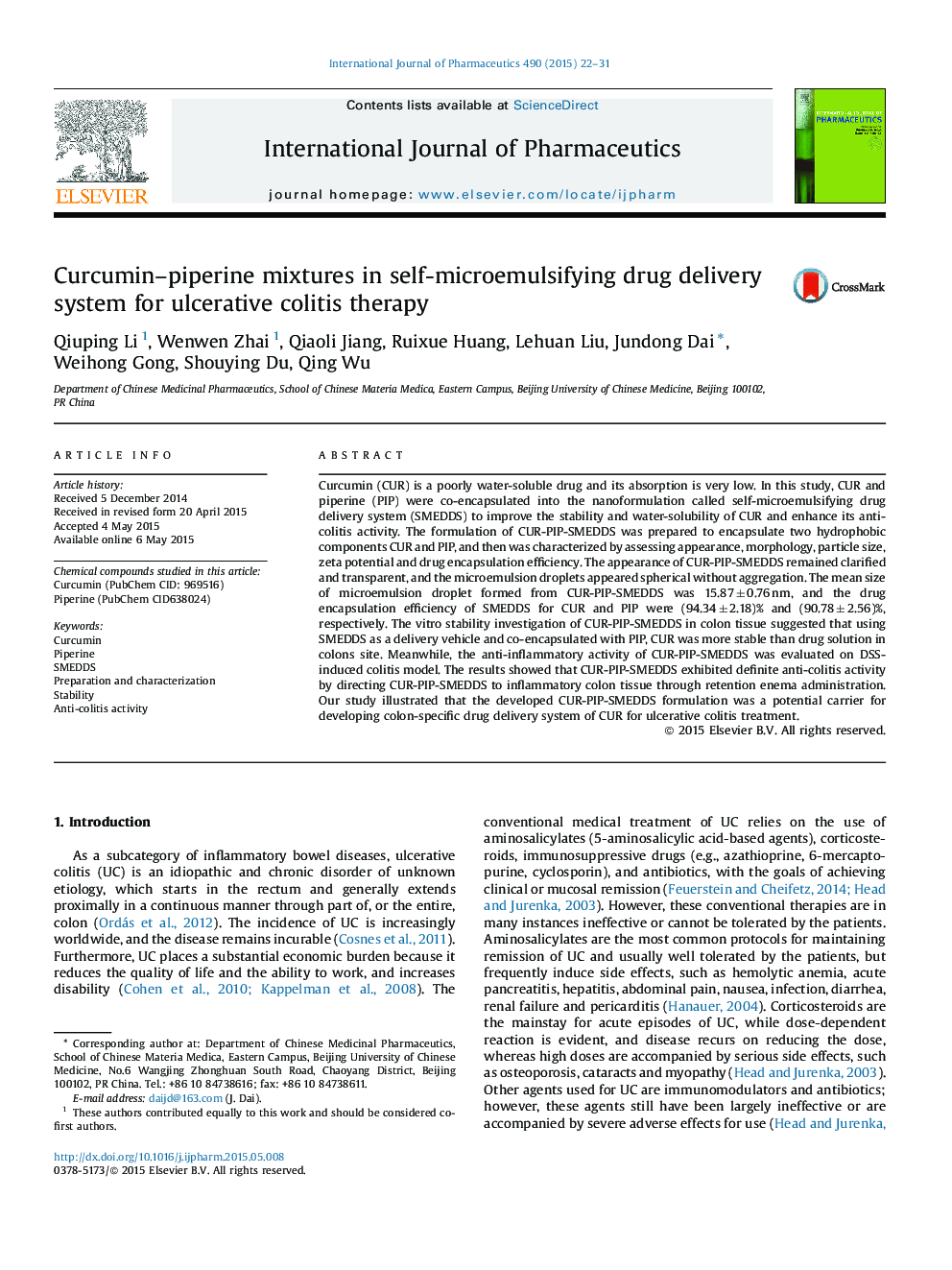| Article ID | Journal | Published Year | Pages | File Type |
|---|---|---|---|---|
| 2501325 | International Journal of Pharmaceutics | 2015 | 10 Pages |
Curcumin (CUR) is a poorly water-soluble drug and its absorption is very low. In this study, CUR and piperine (PIP) were co-encapsulated into the nanoformulation called self-microemulsifying drug delivery system (SMEDDS) to improve the stability and water-solubility of CUR and enhance its anti-colitis activity. The formulation of CUR-PIP-SMEDDS was prepared to encapsulate two hydrophobic components CUR and PIP, and then was characterized by assessing appearance, morphology, particle size, zeta potential and drug encapsulation efficiency. The appearance of CUR-PIP-SMEDDS remained clarified and transparent, and the microemulsion droplets appeared spherical without aggregation. The mean size of microemulsion droplet formed from CUR-PIP-SMEDDS was 15.87 ± 0.76 nm, and the drug encapsulation efficiency of SMEDDS for CUR and PIP were (94.34 ± 2.18)% and (90.78 ± 2.56)%, respectively. The vitro stability investigation of CUR-PIP-SMEDDS in colon tissue suggested that using SMEDDS as a delivery vehicle and co-encapsulated with PIP, CUR was more stable than drug solution in colons site. Meanwhile, the anti-inflammatory activity of CUR-PIP-SMEDDS was evaluated on DSS-induced colitis model. The results showed that CUR-PIP-SMEDDS exhibited definite anti-colitis activity by directing CUR-PIP-SMEDDS to inflammatory colon tissue through retention enema administration. Our study illustrated that the developed CUR-PIP-SMEDDS formulation was a potential carrier for developing colon-specific drug delivery system of CUR for ulcerative colitis treatment.
Graphical abstractFigure optionsDownload full-size imageDownload high-quality image (224 K)Download as PowerPoint slide
